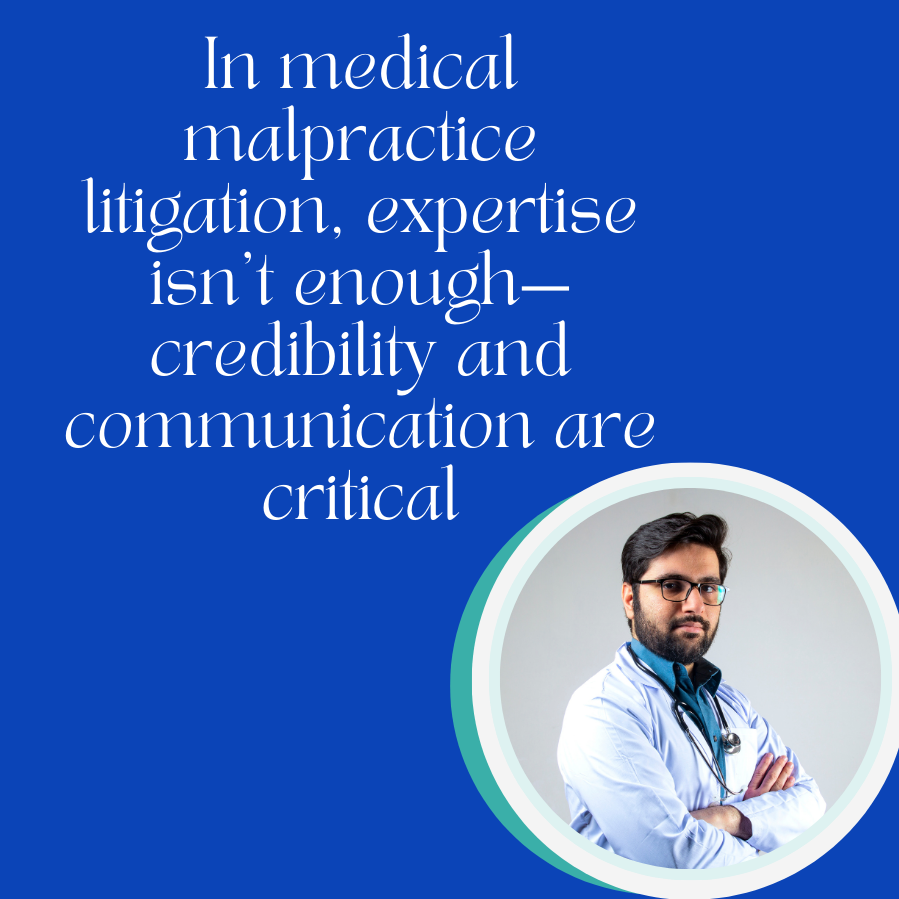
Medical malpractice cases are often complex, demanding a deep understanding of medical standards, procedures, and outcomes. For attorneys handling these cases, the choice of a medical malpractice expert witness can be the deciding factor in the courtroom. From clarifying intricate medical details to addressing allegations of negligence, the right expert adds weight and credibility to your arguments.
But finding the ideal expert witness isn’t just about credentials—it’s about relevance, reliability, and communication skills. This article explores the critical steps to selecting a medical malpractice expert witness and highlights potential pitfalls to avoid.
Medical malpractice cases hinge on proving whether a healthcare provider breached the standard of care, directly causing harm to the patient. Expert witnesses play a pivotal role in establishing the standard of care, providing technical analysis, and clarifying causation. Their testimony can simplify medical complexities for judges and juries, but only if the expert is properly selected and adequately prepared.
Medical malpractice cases cover diverse specialties, from surgery to pediatrics. Identifying the specific expertise you need is crucial. For example, a case involving an alleged surgical error would benefit from an expert who is an actively practicing surgeon familiar with the specific procedure in question. Look for experts with direct, recent experience in the relevant field to ensure their knowledge is current.
A strong educational background and professional certifications lend credibility to an expert witness. Key factors to assess include:
Even the most qualified medical professional may falter in a legal setting if they lack courtroom experience. What to look for includes:
Review transcripts of their past testimony to evaluate their clarity, consistency, and demeanor.
Impartiality is critical in medical malpractice cases. The opposing counsel will scrutinize the expert’s background for potential bias. Red flags to avoid include:
Use services like ExpertConnect Litigation Support to ensure thorough vetting and conflict-of-interest checks.
An effective expert witness must translate medical jargon into terms the jury can understand. To evaluate their communication skills, conduct mock interviews or depositions to test their ability to simplify complex concepts and observe their confidence and professionalism during the interaction.
In a malpractice case involving delayed cancer diagnosis, the plaintiff’s legal team relied on an expert specializing in oncology.
The expert analyzed medical records to highlight diagnostic delays and provided a clear timeline linking the delayed diagnosis to advanced disease progression. Their compelling testimony helped the jury understand the breach in care.
The expert’s testimony was instrumental in securing a favorable verdict, emphasizing the importance of selecting an expert with both technical expertise and communication skills.
While advanced degrees are important, practical experience often carries more weight in court.
Hiring a generalist rather than a specialist in the relevant field can weaken the case.
Under tight deadlines, attorneys may skip thorough background checks, leading to credibility challenges during litigation.
Unaddressed biases can result in the expert’s testimony being discredited or excluded.
An expert with poor communication skills or limited litigation experience may struggle under cross-examination.
Expert witness services like ExpertConnect Litigation Support provide access to a curated network of professionals who are pre-screened for credentials, qualifications, litigation experience, and communication skills. They also ensure impartiality and conflict-free backgrounds.
Partnering with an expert witness service ensures you work with professionals who are well-prepared for the demands of litigation, saving time and reducing risks.
Ensure the expert has access to all relevant medical records, depositions, and case details.
Work closely with the expert to refine their testimony, ensuring alignment with your case strategy.
Practice sessions can help the expert anticipate challenging questions and refine their responses.
Verify that the expert’s methodologies and opinions comply with applicable legal standards, such as the Daubert or Frye standards.
Selecting the right medical malpractice expert witness is critical to achieving a favorable outcome in complex cases. By prioritizing relevant expertise, thorough vetting, and effective communication skills, you can build a stronger case and present compelling arguments in court. Partnering with expert witness services like ExpertConnect Litigation Support streamlines the selection process, giving you access to pre-vetted, courtroom-ready professionals. Don’t leave your case to chance—visit their website today to find the ideal medical malpractice expert witness for your next medical malpractice case.